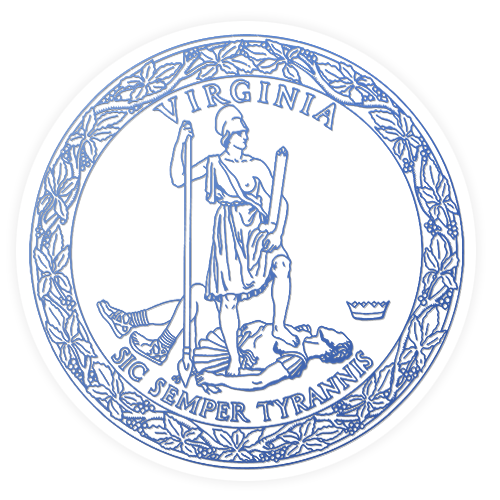
RICHMOND—Governor Ralph Northam today announced the availability of $73 million to protect water and soil health through the Virginia Agricultural Best Management Practices Cost-Share Program, which represents the largest-ever investment of state funding to assist farmers implementing conservation practices. The program has been updated to provide greater flexibility and reduce barriers to farmer participation.
“This historic investment is exactly the type of commitment we need to ensure more producers can participate in the Commonwealth’s cost-share program to implement conservation practices and continue improving water quality in Virginia,” said Governor Northam. “Whether growing crops, raising cattle, or producing poultry, agricultural best management practices are important tools that can benefit Virginia farms while also helping keep pollution out of our streams and the Chesapeake Bay.”
The cost-share program is a partnership between the Virginia Department of Conservation and Recreation (DCR) and Virginia’s 47 soil and water conservation districts. Individuals, partnerships, trusts, and other businesses operating farms in Virginia may qualify for cost-share assistance. The program year runs July 1, 2019 through June 30, 2020.
Producers may visit their local district office for information and to apply. Applications are first-come, first-served.
“Priority practices, such as fencing to keep cattle out of streams, animal-waste storage and transport, and riparian buffers, have clear benefits for water quality and the farmer’s bottom line,” said Secretary of Natural Resources Matthew J. Strickler. “Implementation of these practices is necessary for Virginia to achieve the Chesapeake Bay restoration goals laid out in the upcoming Phase III Watershed Implementation Plan.”
For fiscal year 2020, participant caps have been raised to $100,000. This coupled with a renewed state Agricultural Best Management Practices Loan Program from the Virginia Department of Environmental Quality (DEQ) can make the installation of practices more achievable for many farmers. The loan program will offer zero-interest loans starting July 1 and may now authorize up to 100 percent of loan assistance in the form of principal forgiveness for projects that provide a high water quality benefit.
“Simply put, now is the time to apply for state cost-share funds,” said Secretary of Agriculture and Forestry Bettina Ring. “I encourage producers who have never participated before to visit their local soil and water conservation district and learn what is different this year. We have worked hard to ensure that they will find a more flexible, streamlined program tailored to their needs.”
“Greater financial incentives and increased options make this a very exciting year for the Commonwealth’s agricultural best management practices cost-share program,” said DCR Director Clyde E. Cristman. “We thank the producers who have been a part of this program in the past and hope to attract more participants.”
Virginia’s soil and water conservation districts have administered the Virginia Agricultural Best Management Practices Cost-Share Program since its inception in 1984. As of July 1, 2019, districts will also receive a record $9.4 million to provide the technical assistance farmers need to implement the program’s practices.
“Conservation districts serve as the front line, the boots on the ground, when it comes to implementing agricultural best management practices,” said Kendall Tyree, Executive Director of the Virginia Association of Soil and Water Conservation Districts. “Having the adequate resources to accomplish that task is critical to their success.”
Many program requirements and practice specifications have been modified this year to make participation easier and to get more conservation on the ground. Additionally, more types of practices are available for funding.
“Farm Bureau has long supported adequate, stable, and reliable funding for cost-share practices, and for flexibility in implementing conservation practices based on site-specific variations,” said Wayne Pryor, President of the Virginia Farm Bureau. “We thank the Governor and General Assembly for their commitment to implementing voluntary conservation measures by providing adequate cost-share funding and technical assistance to districts.”
Other leaders from the Virginia agricultural community voiced their support for the new program year.
“Water quality is important to cattle producers in Virginia. Voluntary cost-share participation has been very beneficial to producers and landowners of the Commonwealth and will continue to be so in the future.” —Tracy Fitzsimmons, Executive Director, Virginia Cattlemen’s Association
“The Virginia Agribusiness Council thanks the Northam Administration and the General Assembly for prioritizing funding for voluntary agricultural best management practices and technical assistance. The cost-share program continues to serve as a critical resource for producers as we work to achieve the Commonwealth’s water quality goals.” —Kyle Shreve, Executive Director, Virginia Agribusiness Council
“The poultry industry is grateful for the Governor’s budget proposal, adopted by the General Assembly, to help incentivize poultry litter transport out of the Chesapeake Bay watershed and to counties within the watershed that are low in soil phosphorus.” —Hobey Bauhan, President, Virginia Poultry Federation
# # #